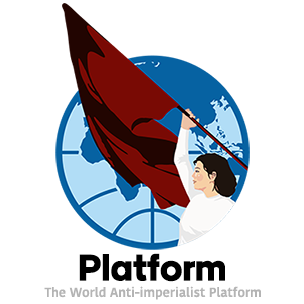Dear comrades:
We are not going to surprise anyone if we point out that if the USA has stood out for something above other nations it is for its capacity to generate wars. At least, in the last decades, they’ve used the freedom delivery as a casus belli to countries which, according to their perspective, hadn’t. This answers to an imperialist and interventionist policy. Although the shape has changed, the backstory didn’t vary at all. This is to say, the expansion of business through coercion and war.
Whenever the US has intervened in a country, it has been for its own interests, not for elevated interests such as freedom, despite what they claim. When they do not act on their own, because it is not convenient for them on the international stage, they use third countries or international organizations such as the UN – or more precisely the UNSC – as they did in Korea in 1950. . In this case, it can be noted that nowhere in the Panmunjom Armistice treaty does a signature appear explicitly on behalf of the US. In fact, two US generals (Harrison and Clark) appeared on behalf of the, back then, young UN. Likewise, the then puppet president Ri Sung Man did not sign the armistice in this war provoked by the US since 1949, as the Korean-American author Channing Lim explains in detail in his work: “The Korean War, an unanswered question.”
This indirect way through the UN was not used in Vietnam, but it was used in the First Gulf War or in the NATO intervention of the Bosnian War, that generated the Dayton Treaties. In the recent and controversial process of destruction of Yugoslavia, except in the 1999 bombing an other operations, the US used the UNSC as much as they could to create profitable chaos. But this was not the end of this errant war of the last capital champion. The “humanitarian” struggle continued in Afghanistan after 9/11 and in Iraq, where once again the US had to get their own hands dirty without the UN, despite Colin Powell’s show about chemical weapons which never appeared.
But the strategy returned, under a Peace Nobel president, Libya was intervened, pushing the fall into chaos of the “Jamahiriya”. NATO, an organization that was originally created to combat socialist countries, at least ratified its disposal after the dissolution of the Warsaw Pact as a repressor of countries that are not aligned with Washington. We can add to this list Syria, where the intervention has been almost a secret. We could say mainly through “underground” funding. It is curious to find in this recent Arabian space revolt groups who took back colonial flags and that we can see similar phenomena in Taiwan or even Hong Kong.
But today our main attention has been brought back to Europe, the Ukrainian War. Here media has presented a Manichean battle between angel Zelensky and devil Putin. Spite the existence of a large conflict of clashing sphere influences, a delicate national question and a color revolution where anti-Russian nazi groups participated and participate. Excuse us if we resume, but here there is a grave situation were self-proclaimed democratic countries from the EU allow nazis parades and promise to use anti-totalitarian rhetoric to chase the communist ghost.
Apart from our rejection, from Vanguardia Española we want to emphasize three more thesis:
One: It urges a critique of the right of self-determination, which today develops even into an individual level. It has been historically defended by both the USA, leftism and communism. And not always forms part of a good cause or just it is not a solution to a complex national question. In fact, many times it is an interesting tool for imperialism.
Two: A New Cold War has begun, and this time anti-imperialist and communist forces might be weaker, for now. Imperialism may be more accepted than before by people all around the world, especially thanks to the spread of liberal-democratic ideology. What started one hundred years ago as a fraud explaining the history of Ancient Greece as a commonwealth of democracy and freedom, without slavery or a foreign policy based on imperialism and exploitative colonialism.
Last cold war there were a few forces in the West that tried to build an alternative capitalism and in every corner of the world there were peoples which directly empathize with a root alternative: marxist socialism, but today many socialist powers have fallen and what remains is under siege and has a very bad press, especially China, which is not usually contemplated as communist in any senses.
Three: In consequence, we propose to think about underlining Liberal Imperialism. It is usually forgotten that the abolition of formal slavery was in part an initiative of nineteenth century British imperialism. Imperialism can have a liberal or humanitarian face, with a higher success than admitted and with a recent rise. Now that they have realized that the despise they had to the peoples they colonized has turned against them, a second cold war starts. Now that they have realized that Chinese communism was not just corruption. But we could remember that almost one hundred years before reactionary intellectual Oswald Spengler was worried about an inevitable vengeance by Asia thanks to their low and “mortal” wages, or the imperialist nature of the founders of the UN such as Jan Smuts, as historian Mark Mazower explained.
To conclude, we want to remark that anti-imperialism proves to be crucial because capitalism is not an abstract system, as postmoderns and leftists like to think, it is something concrete, very related to the power of the State and especially some which played a big role in its development. And if it is tied to one nowadays, it is the USA, so any chance of overcoming this mode of production is related to its setback.
Thank you very much.






